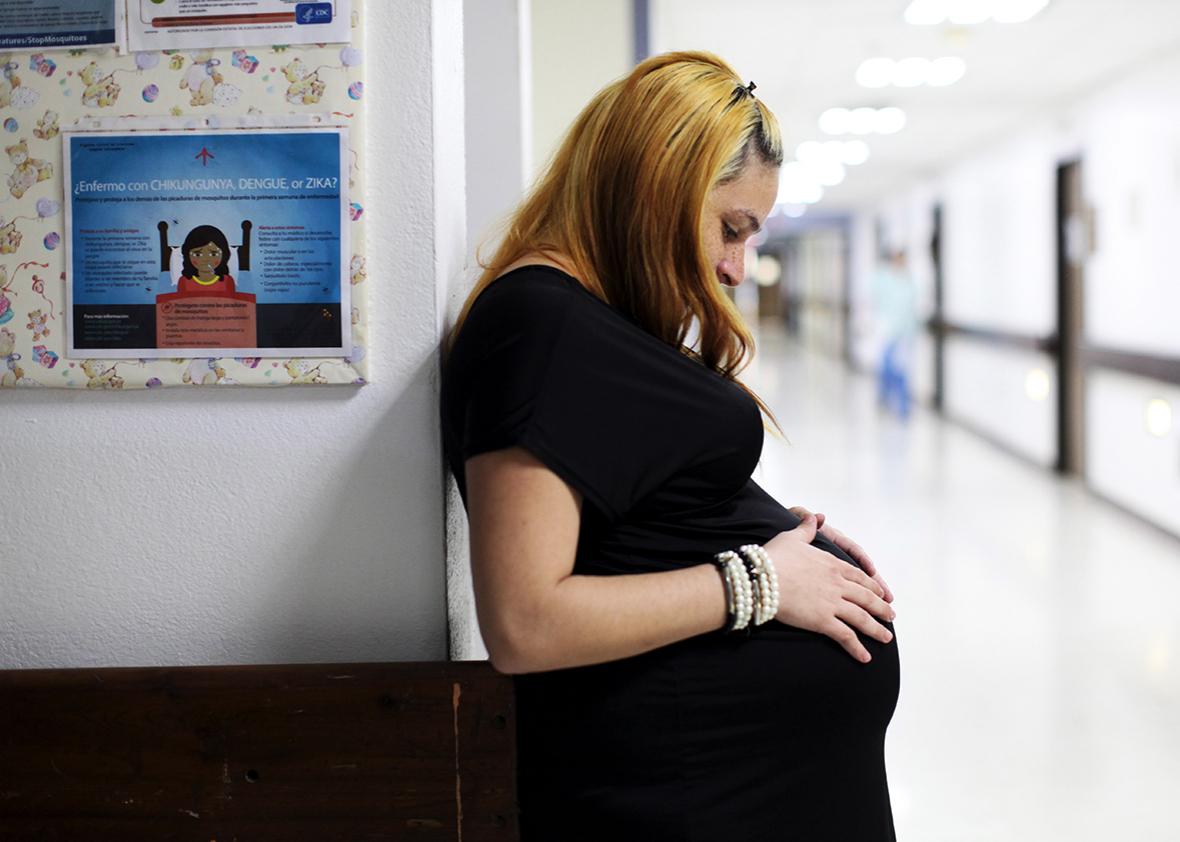Women of childbearing years are suddenly asking me if they should travel to Florida. I tell them that, for the vast majority of Florida, the answer is yes.
However, the Centers for Disease Control and Prevention has announced 14 cases of the Zika virus in one small section of Miami–Dade County. Understandably, people are frightened: The disease they’ve been hearing about for months is finally here in their own country. The CDC has responded on Monday with a wise travel advisory—to restrict travel to this approximately square-mile region where Zika was discovered in local mosquitoes. Will that be enough? For now, since the virus has only appeared in the area, it seems so: The Aedes aegypti mosquitoes that carry the disease only travel a few hundred feet in their lifetimes, which is just one to two weeks long. Coupled with excellent mosquito-control measures underway (draining swampy areas, spraying to kill larvae and adults), there is no reason to believe this outbreak will spread beyond those few short blocks.
The place that should be bringing up far more alarm, and far more questions about whether individuals should visit, isn’t Florida—it’s Puerto Rico. According to the CDC, the U.S. territories, including Puerto Rico, American Samoa, and the U.S. Virgin Islands have reported close to 5,000 cases of Zika from January 2015 through the end of this July, with the vast majority occurring in Puerto Rico. CDC Director Tom Frieden feels the numbers are actually much higher: He thinks at least 50 pregnant women are being infected by the Zika virus in Puerto Rico every day. A CDC study looking at the latest outbreak in Brazil, published in the New England Journal of Medicine in May, revealed the risk of microcephaly from Zika in the first trimester to be between 1 percent and 13 percent. Previous research found the overall risk of birth defects from Zika in Brazil to be as high as 30 percent. If those rates hold true in Puerto Rico, that could be devastating.
A story in the New York Times on Sunday revealed the troubling situation in Puerto Rico, where the virus has spread much more rapidly thanks to significant problems with standing water and mistrust of public health warnings about the disease. News media in Puerto Rico still calls the connection between microcephaly and Zika a theory even though it was proven and accepted by the World Health Organization and CDC in April. The country is suspicious of pesticides intended to limit the mosquitos, in part due to their experience as a testing ground for Agent Orange during the Vietnam War.
The small number of cases occurring in Florida right now was expected, with a few local mosquitos picking it up—after biting travelers returning from endemic areas infected with Zika—and then transmitting it to a few other people. The threat is being handled appropriately as health officials attempt to contain mosquitos. The situation in Puerto Rico, where cases keep coming in yet awareness stays low, is harder to resolve. People in Florida do not need to be concerned at this point, but people in Puerto Rico should be. And yet, by some reports: they aren’t: The CDC is sending its Emergency Response Team to Florida. It is thanks to the situation in Florida that the Food and Drug Administration granted emergency use of a new diagnostic test for Zika.
Why are we alarmed by Zika in Florida but not in Puerto Rico? Could it be because we don’t generally think of PR as part of the United States? Or because it is separated from the continental states by an ocean, which makes us feel protected and safe? Whatever the reason, we need to counter a misapprehension of risk with sober facts.
Zika is unlikely to get much worse in Florida, in no small part because of how strongly public authorities are responding to the problem. In fact, there’s little historical precedent for mosquito-based viruses to spread extensively in the continental U.S.: The very same mosquito transmits close to 400 million cases of Dengue fever worldwide every year, including 200,000 cases in Mexico, yet this far worse disease has never taken hold in Florida because of improved mosquito-control measures. Unless you are pregnant or soon to be pregnant, the medical risks from a Zika infection—which causes mild flu-like or no symptoms—are very small. The worry is understandably caused by the dreaded birth defect microcephaly. But many doctors understand this risk, and thanks to a recent policy update, the CDC now recommends more proactive screening for the condition among pregnant women. Wearing condoms or abstaining from sex are effective ways to greatly lower the risk of sexual transmission. Zika blood tests can be performed on those who are concerned or most at-risk.
In Puerto Rico, however, hundreds if not thousands of pregnant women have been exposed and will need to be monitored closely for signs of the virus. People there need to realize the threat is real and they can take small actions to limit it. Applying insect repellent with DEET, wearing long-sleeve clothing, and removing standing water makes sense in areas of outbreak. Dr. Frieden is right to be alarmed at the ostrich approach to Zika prevention and containment in Puerto Rico.
The cultural response to Zika couldn’t be more different between the continental U.S. and one of its important territories. Here, we tend to imagine the worst and are preoccupied with exaggerated risks. The operative response to a new outbreak of Zika in Florida is irrational fear, whereas in Puerto Rico it is irrational denial. Both reactions can lead to ineffective responses. Instead, what is required is a calm consideration of facts and careful implementation of public health strategies.
